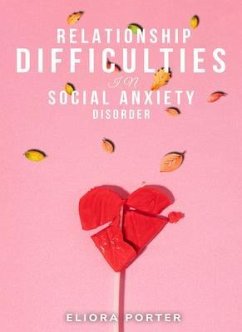Little is known about the quality of socially anxious individuals' romantic relationships. In the present study, we examine associations between social anxiety and social support in romantic relationships. In Study 1, we collected self-report data on social anxiety symptoms and received, provided, and perceived social support from 308 undergraduates and their romantic partners. Couples also reported whether they were still in a relationship one year later. Results indicated that men's social anxiety at Time 1 predicted higher rates of break-up at Time 2. Of the support variables, for both men and women only perceived support was significantly predictive of break-up. Social anxiety did not interact with any of the support variables to predict break-up. In Study 2, undergraduate couples with a partner high (n = 27) or low (n = 27) in social anxiety completed two 10-minute, lab-based, videorecorded social support tasks. Both partners rated their received or provided social support following the interaction, and trained observers also coded for social support behaviors. Results showed that socially anxious individuals reported receiving less support from their partners during the interaction; however, differences in support were not apparent by partner- or observer-report. High and low social anxiety couples did not differ in terms of the target's provided support. Taken together, results suggest that social anxiety is associated with difficulties even in the context of established romantic relationships. However, these differences appear to exist in large part in the eye of the socially anxious beholder, and may not be evident to the anxious individual's partner or to others.
Dieser Download kann aus rechtlichen Gründen nur mit Rechnungsadresse in A, D ausgeliefert werden.









